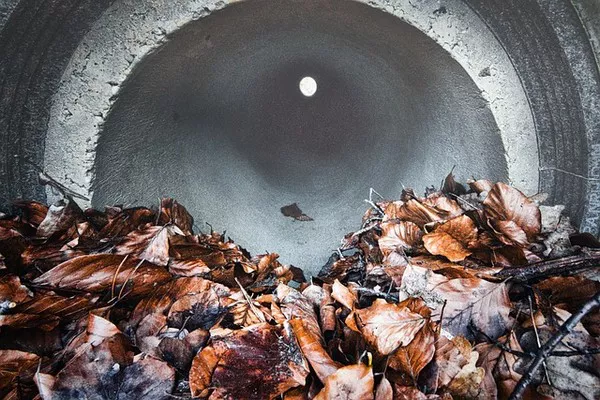Sewer line clogs are a plumbing woe that can disrupt daily routines and lead to unpleasant situations. Understanding the factors that contribute to these blockages is key to preventing them and maintaining a smoothly functioning plumbing system. In this informative guide, we delve into the causes of sewer line clogs, shedding light on the common culprits and offering insights into effective prevention strategies.
1. Grease Buildup: A Slippery Situation
One of the primary causes of sewer line clogs is the accumulation of grease and fats. When kitchen grease is poured down the drain, it may appear to flow freely initially. However, as it cools and solidifies, it adheres to the inner walls of the sewer pipes, gradually narrowing the passage and causing obstructions. Regularly disposing of cooking grease in a proper container and avoiding pouring it down the drain can help prevent this issue.
2. Foreign Objects: Flushing Woes
Foreign objects that find their way into toilets and drains can wreak havoc on sewer lines. Items such as sanitary products, paper towels, dental floss, and even baby wipes are not designed to dissolve easily in water, making them prone to causing blockages. Educating household members about proper disposal methods and avoiding flushing non-flushable items can go a long way in preventing sewer line clogs.
3. Tree Root Infiltration: Nature’s Intrusion
Nature itself can pose a threat to sewer lines. Tree roots are notorious for seeking out sources of water, and they can infiltrate tiny cracks or joints in sewer pipes. As they grow and expand, these roots can exert pressure on the pipes, causing them to crack or collapse and leading to clogs. Regular tree maintenance, choosing sewer-friendly plantings, and using root barriers can help mitigate this issue.
4. Accumulated Debris: Gradual Buildup
Over time, debris, sediment, and minerals from wastewater can accumulate within sewer pipes. This accumulation narrows the passage, impeding the flow of wastewater and leading to clogs. Regular professional drain cleaning and maintenance can help prevent the gradual buildup of debris and ensure the optimal flow of wastewater.
5. Aging Infrastructure: Corrosion and Deterioration
As sewer pipes age, they are susceptible to corrosion, rust, and deterioration. These factors can result in the formation of rough surfaces within the pipes, promoting the accumulation of debris and causing clogs. Addressing aging infrastructure through proactive maintenance, regular inspections, and timely pipe replacement can help prevent clogs caused by deteriorating pipes.
6. Improper Installation: Poor Drain Design
In some cases, sewer line clogs can be attributed to improper installation or poor drain design. Insufficient slope, inadequate venting, or incorrect pipe materials can contribute to sluggish drainage and clogs. Engaging professional plumbing services for proper installation and adhering to plumbing codes can help avoid such issues.
7. Hygiene Products and Chemicals: Unintended Consequences
Flushing hygiene products, chemicals, or excessive amounts of cleaning agents down the drain can lead to sewer line clogs. These substances may not break down easily and can contribute to obstructions within the pipes. Using disposal methods recommended by manufacturers and avoiding excessive use of chemicals can prevent these problems.
In conclusion
Understanding the causes of sewer line clogs empowers homeowners and property managers to take proactive steps in preventing plumbing predicaments. By addressing grease buildup, avoiding the flushing of foreign objects, maintaining landscaping wisely, regularly cleaning drains, attending to aging infrastructure, ensuring proper installation, and using drain-friendly disposal methods, individuals can contribute to the longevity and efficiency of their plumbing systems. Embracing these preventative measures not only alleviates the frustration of sewer line clogs but also supports the health and functionality of the entire plumbing network.

